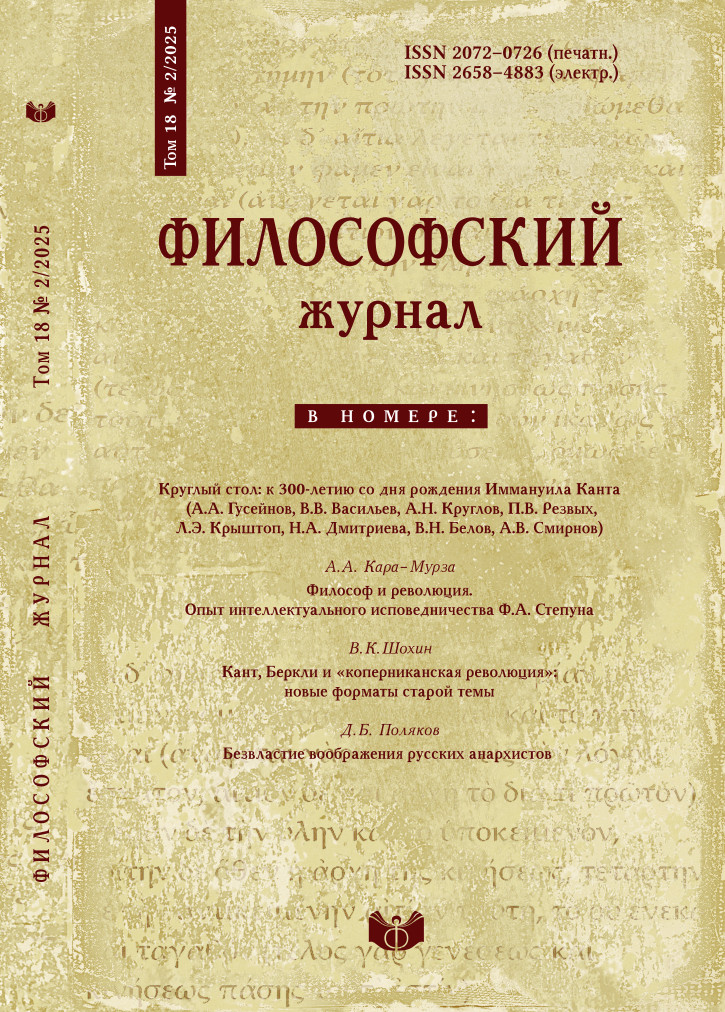Kant in Russia: themes, problems, lacunas
DOI:
https://doi.org/10.21146/2072-0726-2025-18-2-53-62Keywords:
Kant studies, Russian Kantianism, transcendental philosophy, philosophical reception, archiveAbstract
The answer to the question about the relevance of Kant’s philosophy is inevitably associated with summarising the outcomes of the research, its achievements and ‘white spots’. Reception of Kant’s philosophy in Russia was and remains inscribed in the European context, and nowadays – in the world context of Kant studies. Therefore, I begin my search for an answer to the question posed by outlining the problems that are the focus of contemporary research and showing that Russian scholars are also actively involved in it. I then briefly point out that Kant’s philosophy has taken a firm place in Russian intellectual culture and that this is documented in the results of research carried out in the last quarter of this century. Next, I formulate the methodological requirements for conducting research on the reception of Kantian ideas in Russia: recourse to archival and/or other little-known materials of ‘second-rate’ philosophers and consideration of the European context in order to adequately reconstruct the specifics and content of the Russian reception of Kant. In order to demonstrate the productivity of these requirements, I present thematic examples, which are at the same time the immediate research tasks for further elaboration of the history of Kant’s reception in Russia: 1) Kantianism and transcendental philosophy in Russian spiritual academies, 2) reception in Russia of Kant’s different works separately, 3) Kant in Russian neo-Kantianism, 4) comprehension of Kant in the post-revolutionary period. Filling these lacunas will significantly enrich both Russian Kant studies and the history of Russian philosophy.






